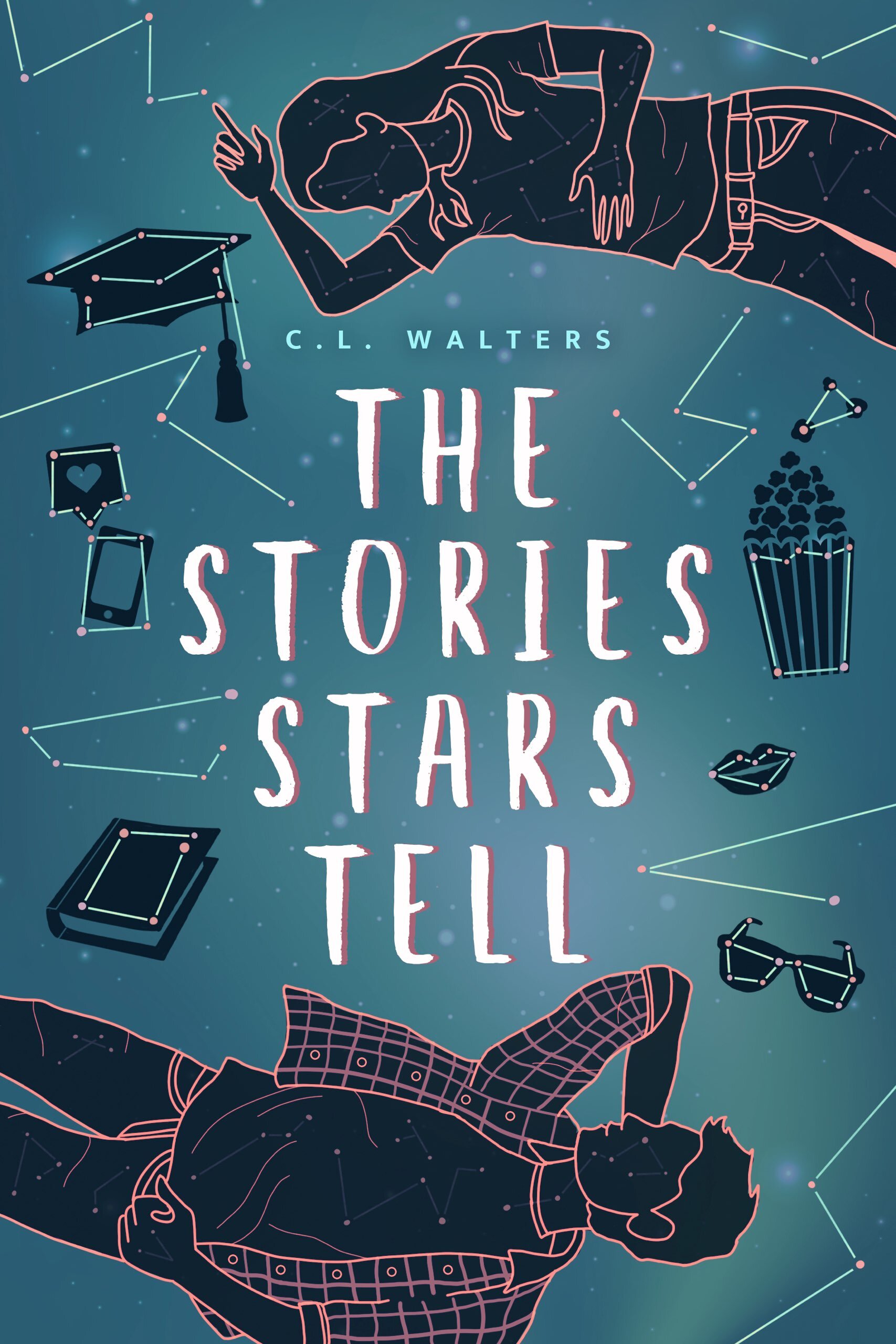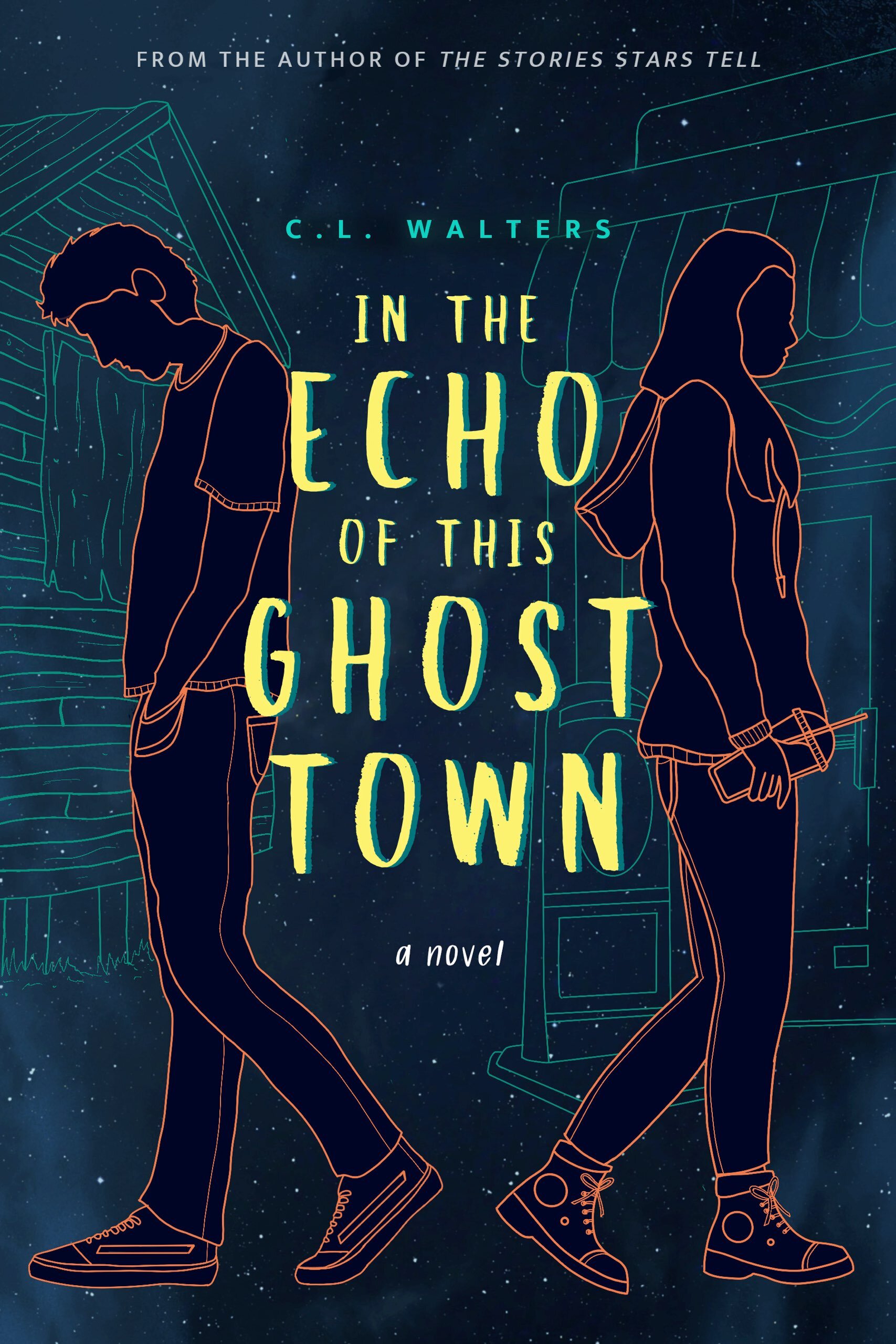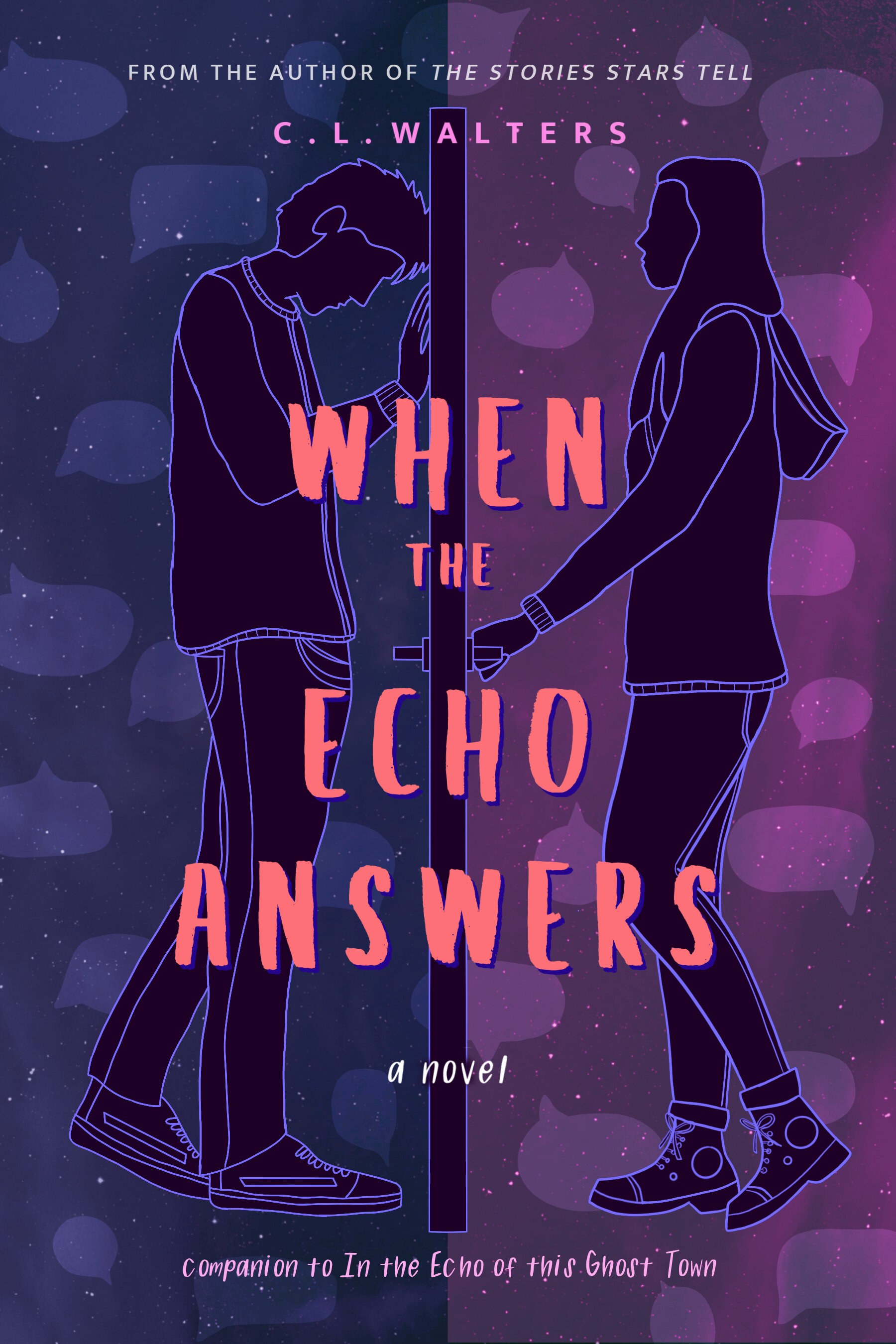Sometimes there are characters that pop off the page. I call these “loud” characters which perhaps mischaracterizes them. I’m referencing those characters that connect to the audience in a way that in many respects is intangible. But we know people like this, right? People who feel larger than life. Those humans that somehow speak to our hearts without saying a word, or those souls who seem to connect with us in a way that is powerful beyond words. That’s the kind of character I’m referencing.
Tanner in The Stories Stars Tell was like this for me. I had assumed Stars would be Emma’s story (and half of it is), but then Tanner jumped off the page whenever Emma interacted with him, and I wasn’t able to keep him from telling his version of events (and is the reason The Stories Stars Tell became a dual perspective story). It’s also why he’s an important part in Griffin’s story. Tanner is just… is it weird to say that when I think of Tanner my heart does a little dance in my chest? Yeah. Probably. But it’s the truth.
Maxwell in The Echo of this Ghost Town did the same thing. She’s freaking amazing!! Every time I think about her, I grin. She’s strong and opinionated. She’s gutsy but vulnerable. She doesn’t have it all together, but she’s trying to figure it all out. Plus she’s got Cal (who is another of those amazing characters). When she showed up in Griffin’s story (completely unplanned and randomly stopped to talk to Griffin), I did a double-take (just like Griffin). Here’s that scene that took me by surprise:
“Hey.”
I look up at the sound of a voice, grateful to be jerked from the train of my thoughts.
The girl. She’s standing on the other side of the table in her dark t-shirt and cutoff shorts, her back to the gas pumps and road. The light from the store illuminates her, and I think she’s cute, but obviously not all there if she’s talking to a stranger.
“Yeah?”
She sits down with a Slurpee, and I look at it longingly but also wish I had some vodka to spike it with. I conjure Danny’s words from the night before. I’d told him I’m always drunk. What had he said back? “Yeah. Maybe that’s the fucking problem. It’s time to grow up, Griff.” What if I do have a problem? Then I’m annoyed by the stupid thought—of course, I don’t. What the fuck? Can’t this weird girl tell I’m busy sulking?
My face must screw up because she says, “I’m not carrying any diseases.”
I take a sip of my water, not sure what to do about this stranger who’s sat with me at a table outside of Custer’s. I glance to check if someone is playing a joke on me, but all my friends have abandoned me. So yeah, there’s that. I look at her. She’s got a round face, but it’s smooth and pleasant looking. Brownish hair, I think, because it’s pulled back in a bun or something off her face. Black eyeliner. Black T-shirt with the words Def Leppard inside a Union Jack.
She pinches the straw and moves it around the slushy. It squeaks. “Decide I’m not a serial killer?” She smirks, and my eyes are drawn to her blunt black nails at the end of her long fingers holding the red straw.
“Jury’s out.” I look away and take a sip of my water, annoyed but kind of curious.
“Why’s that?”
I shrug. “What if I’m the serial killer?” I can’t look at her, though I’m not sure why. It isn’t like I’m nervous, even if she’s a little unnerving. Why have I said that? The idea of being compared to a killer takes me backward. Griff Nichols, son of a murderer, when I’d been alone, but I’d shed that persona with my crew. I shove the reminder aside.
“It’s a distinct possibility.”
When Maxwell arrived on the page of Griffin’s story with her powerful character voice, I anticipated that I would write another dual perspective tale. So, as is part of my methodology, I took the above scene and wrote it from her perspective:
Ignoring all the lessons my dad has given me that translate to talking to strangers outside of convenience stores in the middle of the night, I leave the confines of the store and approach moody boy like he’s a wild animal in the zoo. Okay, too tentative. I actually just sit down. I don’t do much with hesitancy and never have. Hesitancy hasn’t gotten me much, and besides, there isn’t time for it. Life lessons from my father haven’t been about hanging back or blending into the background. His lessons are, “go after what you want.”
Do I want this boy? Hell no, but I wouldn’t mind helping him smile. Maybe if I pay it forward, I’ll receive it in the future, you know? Like Cassie in fifth grade, who approached my lunch table where I sat alone. She sat down with me.
“Hey,” she’d said and smiled.
I’d smiled back, and it was like kismet.
I channel that moment when I sit down across from wild-animal guy. “Hey.”
He looks at me like I have two heads, his upper lip curling, and his eyebrows scrunching together. He has really nice eyes, a mix up of colors: green, gray, gold, brown. “Yeah?” Even as unattractive as that sneer is, he’s actually cute.
“I’m not carrying any diseases,” I say and draw an incredibly sweet pull of Slurpee through my straw. Strawberry, my favorite, though in a pinch I’ll drink cherry. I hate any other flavor. This delicious goodness is my secret vice. Since I’m always harping my dad about his soda habit, I can’t let him know I’m being a hypocrite with this diabetes slushie.
The guy looks around like someone might be pranking him, which makes me smile around the straw. Then he looks down at his water bottle and swirls it around a little, as if he isn’t sure what’s happening, and the water is the one place where reality exists.
I’m wondering why I haven’t done this before. His reaction is super entertaining. Then again, I don’t know him, and he could be a serial killer in training or something.
I move the straw around in the Slurpee cup so that I can sip up more of the magical unicorn goodness. It squeaks loudly, and I look at the guy. He’s just watching my movements and maybe assessing if I’m safe, which makes me say, “Decide I’m not a serial killer?”
He lifts the water bottle to his mouth, and is it terrible that I think he has a very attractive mouth? God. Upper lip has this beautiful bow shape, and the bottom is full. I imagine he’s probably a good kisser and realize I’m being creepy.
“Jury’s out,” he says.
I like his voice. Full, kind of melodious, like a ballad with one of those amazing kitschy pop riffs, but deep. Not baritone or bass deep. More like a low tenor. I wonder if he sings.
“Why’s that?” I ask.
He shrugs his sharp shoulders under his dark t-shirt. “What if I’m the serial killer?”
“It’s a distinct possibility.” I smirk at my cup.
Max’s voice on the page was so flamboyant and powerful that it was a joy to write scenes for her, but when the narrative of In the Echo of this Ghost Town swelled to 190,000 words, I knew I had to cut, and the easiest answer was to create Max’s own story. That is how When the Echo Answers, as a companion came to be. While there are scenes common to both stories, the narrative is uniquely Max’s because Max was a unique character with her own story to tell.






